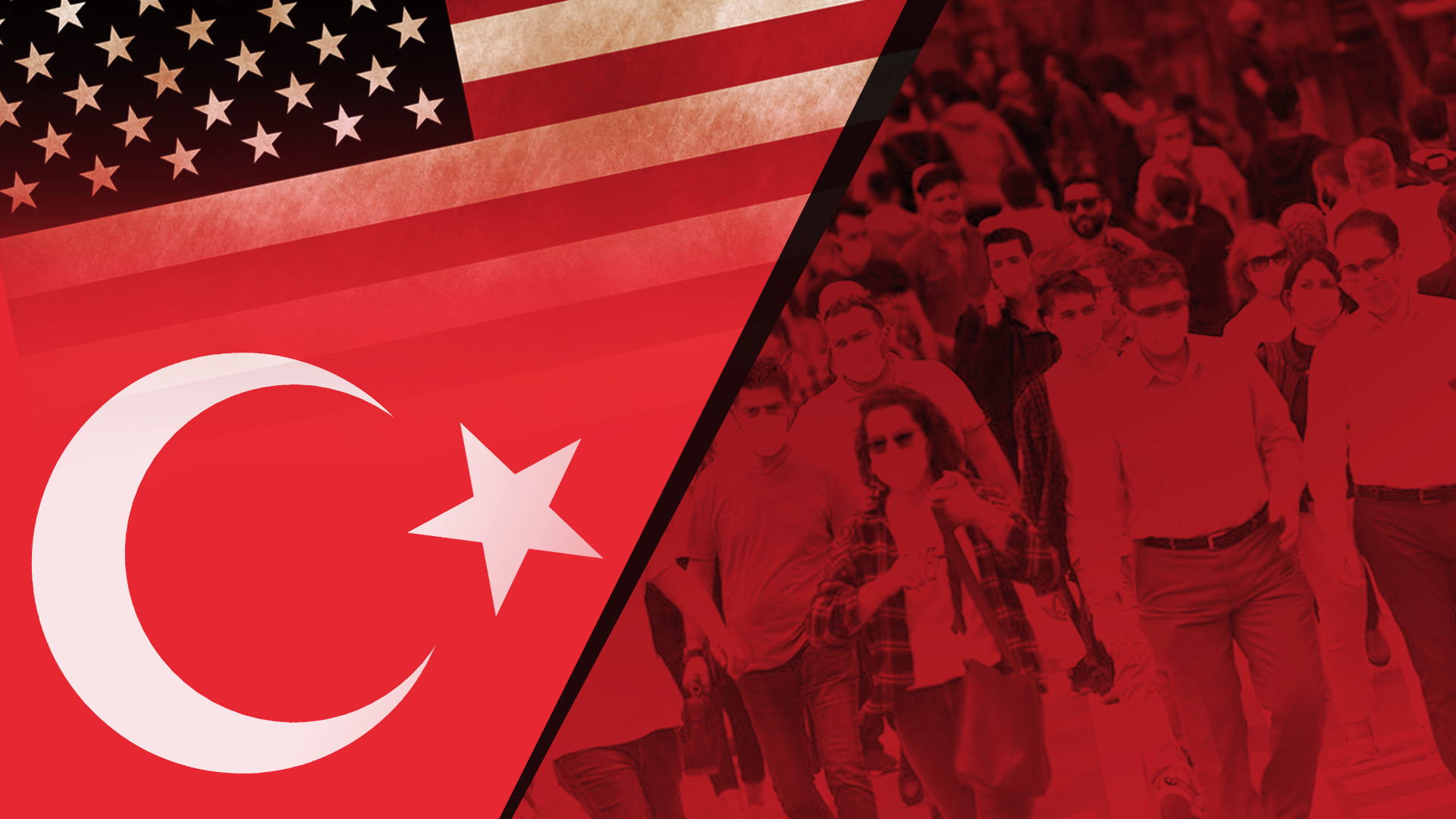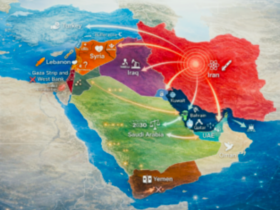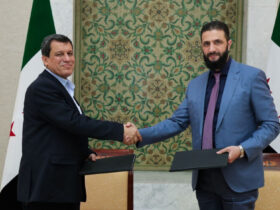Over the last week, the public agenda in Turkey has been occupied with two hot topics.
The first was the battle of words between Mike Pompeo and Mevlut Cavusoglu, the two top diplomats of the United States and Turkey, at a NATO meeting.
The second was the recent decisions taken on nationwide lockdowns and the vaccination plan made with the Chinese company Sinovac for the near future.
ALTERCATION BETWEEN CAVUSOGLU AND POMPEO
Secretary of State Mike Pompeo heavily criticized Turkey in a speech during his final NATO meeting, accusing Ankara of disrupting the organization’s security and causing instability in the eastern Mediterranean.
Pompeo attacked Turkish officials for buying a Russian weapons system. He also criticized them for the destabilization of the Eastern Mediterranean via the gas resource disputes with Greece and Southern Cyprus.
Pompeo told Cavusoglu that Turkey should not have sent paid Syrian fighters to Libya and to the Nagorno-Karabakh conflict between Azerbaijan and Armenia.
Other NATO allies, especially France, Greece and Luxembourg, joined in on the criticism of Turkey.
French Foreign Minister Jean-Yves Le Drian allegedly said that NATO’s unity was not possible if an ally copied Russian actions, citing Turkey intervening with its own fighters.
On the other hand, Cavusoglu criticised both the US and France for their support of Greece in the Eastern Mediterranean, and their support for the YPG/PKK terrorist organisation.
“I just outlined the differences between the two countries and outstanding issues,” Cavusoglu said, during a public event after the heated NATO meeting.
Turkey has been at odds with France on many issues, from the Libyan conflict to gas exploration efforts and the designating of maritime border areas in the Eastern Mediterranean, as well as the Syrian conflict.
Turkey and the US also have differences over Ankara’s purchase of Russian S-400s. On Thursday, Cavusoglu said that he could not talk about the confidential meeting, adding he explained the reason why Turkey purchased the S-400 weapons system from Russia.
Turkey’s support of Azerbaijan, which recently reclaimed most of its Karabakh territories from occupying Armenian forces, is also known to be a sore spot for both Pompeo and his French counterpart Le Drian.
On the other hand, Turkey has been warning both the US and France not to back the YPG/PKK terrorist organization in Northern Syria, arguing that it poses a threat to its national and border security.
COVID VACCINATION PROGRESS AND NEW LOCKDOWNS
Turkey has entered its first full weekend lockdown since May, as COVID deaths more than doubled in less than three weeks, with daily cases now among the highest numbers recorded globally.
The daily death toll has risen to a record high of 196 on Saturday, bringing the total to 14,705.
For the last four months, the Health Ministry only reported daily symptomatic cases, but began reporting all cases on November 25th.
It was reported on Saturday that Turkey had 31,896 new cases including asymptomatic cases.
Turkey is now the fourth worst hit country, only behind the United States, India and Brazil which all have far larger populations than Turkey.
Turkey already announced nationwide partial lockdowns last month on weekends, but the measures failed to halt the rise in new cases and deaths.
President Tayyip Erdogan then announced the full weekend lockdown on Monday, as well as a partial lockdown on weekday nights.
On the other hand, some potentially good news has finally come from Turkey’s health minister, who announced a plan to start using the experimental COVID-19 vaccine from the Chinese company Sinovac.
Fahrettin Koca had already previously announced an agreement with China’s Sinovac Biotech for 50 million doses of CoronaVac, which is currently in late stage trials. Koca said in a statement late Wednesday that the first shipment of the vaccine will arrive in Turkey after December 11th.
The minister said that the early use authorization would be granted after Turkish labs confirm the shots are safe.
“If developments continue positively as we expect, Turkey would be among the first countries in the world to begin vaccinations in the early phase,” Koca said.
A study by the Lancet, has shown the efficacy of CoronaVac to be moderate, and that the vaccine produced lower levels of antibodies than those that have been found in recovered COVID-19 patients. “The protective efficacy of CoronaVac remains to be determined,” the study said.
Candidates from Pfizer-BioNTech and Moderna have said that they have more than 90% efficacy rates. The UK’s AstraZeneca has an efficacy rate of 70-90%, again based on limited clinical trials.
Koca had previously also announced an agreement for 1 million doses of the Pfizer-BioNTech vaccine to be delivered in December.
Turkey was included in the trial phases of both Chinese Sinovac and American-German Pfizer-BioNtech are conducted in Turkey, alongside a locally developed vaccine which also recently began human trials.
The vaccination will be distributed in four stages, the minister announced. The first group includes health care workers, citizens above age 65, and people living in homes for the elderly, disabled or other protective care homes.
The next would be essential workers and people older than 50 with at least one chronic disease. The Third would be the people younger than 50 with at least one chronic illness, young adults and other workers. And the fourth and the last phase would be for the rest of the population.
The Turkish President Recep Tayyip Erdogan said on Monday that the CoronaVac would be administered free of charge. Other COVID-19 vaccines would be sold at pharmacies as well, according to the health minister.
“We will take delivery of at least 10 million doses of the vaccine in December and likely 20 million. Another 20 million doses in January and 10 million in February,” Koca said earlier this week. Turkey’s population is more than 83 million, far less than what is needed for a proper herd immunity to develop.

















Leave a Reply